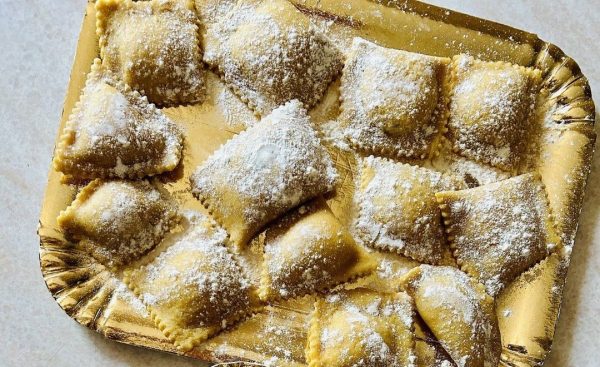Irritable bowel syndrome is one of those conditions that remain underdiagnosed in the U.S. According to the American College of Gastroenterology, it’s estimated that about half of the people affected by it have not been diagnosed.
That’s because it’s a tricky condition. It generally comes with abdominal pain and changes in bowel habits. But those bowel habits may show up as diarrhea… or constipation… or a mix of both. Some patients will have more pain than others, and it may or may not be accompanied with chronic or occasional bloating.
So it can be difficult to determine whether these patients have irritable bowel syndrome, or if something else is going on.
The first line of defense is to start following a low FODMAP diet. This stands for fermentable, oligosaccharides, disaccharides, monosaccharides and polyols. Quite a mouthful, right?
Unfortunately, this type of diet isn’t just hard to pronounce. It’s also very difficult to understand. And it’s not very easy to follow.
Plus, it’s an elimination diet, which means there is a lot of testing to find out which specific foods have a negative impact on the bowels.
And while the FODMAP diet can be extremely effective in controlling IBS when used properly, there is actually an easier way to do that.
Cutting Out Sugar and Starch Is as Effective as FODMAP
A few years ago, a team of researchers wanted to find out the effect of sugars and starches on IBS symptoms. For four weeks one group of IBS patients ate their regular diet. A second group ate significantly less sugar and starch than they normally did.
Basically, they reduced their intake of sweets and processed foods, and increased their intake of meats, fish, nuts, seeds, and select fruits and vegetables low in starch and sucrose
What were the results of the study?
The starch and sucrose-reduced diet (SSRD) greatly reduced IBS symptoms.
After that, the study author proceeded to a second step – to compare the effects of the SSRD against the effects of a FODMAP diet on IBS symptoms.
Two groups of IBS patients ate one diet or the other for four weeks, and were followed up 5 months later.
In both groups, regardless of diet, IBS symptoms improved in 75% to 80% of the patients! Plus, the SSRD group had greater weight loss and fewer sugar cravings than the FODMAP group.
It’s So Easy to Do!
Now here’s the thing…
Patients in the SSRD arm of the study focused on reducing foods that contained high levels of starch and/or sucrose (rice, pasta, processed cereals, refined wheat, sugary foods and so on); and increasing their intake of certain fruits and vegetables, meat, fish, nuts, seeds and natural dairy products.
This is a lot easier to understand and accomplish than trying to follow a low FODMAP diet. Better yet, it’s how everyone should be eating anyway!
Cutting the sugary and starchy foods out of any diet – and adding more natural foods back in – can help resolve all sorts of health conditions, not just IBS. And it’s something nearly everyone can do.
So bypass all of those aisles at the store filled with refined and processed foods that come in cans and boxes, or in the frozen food section.
Instead, go straight to the produce department. That’s where you’ll find 85% of the food you should be eating. I’m talking about organic, non-starchy plant-based foods from all colors of the rainbow. Fill in the remaining 15% of your diet with lean, grass-fed beef, wild-caught fish and pastured poultry.
If you eat these types of foods six days a week, you can take the seventh day off to indulge!
SOURCES:
Roth B, Myllyvainio J, D’Amato M, Larsson E, Ohlsson B. A Starch- and Sucrose-Reduced Diet in Irritable Bowel Syndrome Leads to Lower Circulating Levels of PAI-1 and Visfatin: A Randomized Controlled Study. Nutrients. 2022 Apr 19;14(9):1688.
Roth B, Nseir M, Jeppsson H, D’Amato M, Sundquist K, Ohlsson B. A Starch- and Sucrose-Reduced Diet Has Similar Efficiency as Low FODMAP in IBS-A Randomized Non-Inferiority Study. Nutrients. 2024 Sep 9;16(17):3039.



